That was the content of Prime Minister Pham Minh Chinh's speech at the conference to review Plan No. 356/KH-BCA-C06 on collecting DNA samples of relatives of unidentified martyrs, which took place on the afternoon of July 25.
Speaking at the conference, Prime Minister Pham Minh Chinh said that our country has more than 1.2 million martyrs, of which about 900,000 remains have been gathered in cemeteries.
To date, there are still about 300,000 martyrs' remains that have been buried but their identities have not been determined.
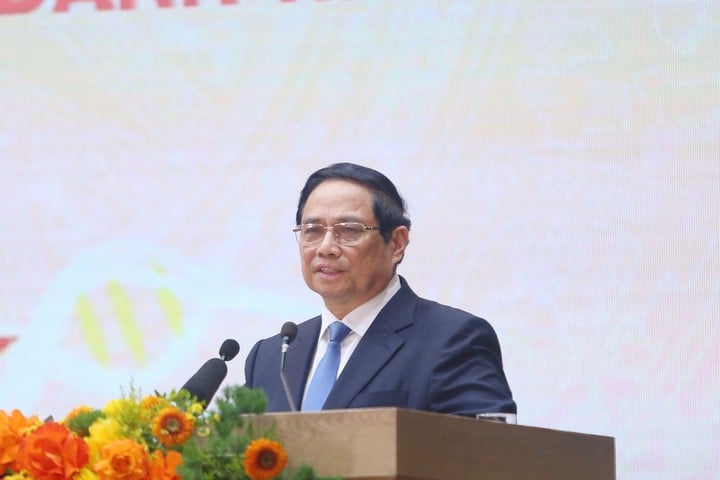
In addition, Vietnam currently has about 652,000 war invalids, 198,000 sick soldiers, more than 132,000 Vietnamese Heroic Mothers and about 320,000 people affected by toxic chemicals.
Recalling these figures, the Prime Minister expressed his emotion and sorrow. The toxic substances left behind not only affect the lives of those directly affected, but are also passed down to future generations. The war has ended, but many families are still anxiously waiting for information about the graves and remains of their loved ones so they can be brought back to their homeland for burial.
The Prime Minister shared that he once met a family of a martyr in Nghe An who went all the way to An Giang to receive the remains of their loved one. "You left in flesh and blood, taking with you your youth, faith, and aspirations for the future. Now, your relatives can only hope to find the remaining bones... only hope to be confirmed as your relatives."
That is not only the personal aspiration of each martyr's family, but also the common aspiration of our nation.
The Prime Minister was concerned about the fact that as time passed, the harsh climate and environment made it increasingly difficult to search for and verify the identities of martyrs. Meanwhile, relatives of martyrs, who longed to welcome their loved ones back, were getting older and weaker, and many were no longer alive.
"If we don't act quickly, it will be too late. No one lives forever to wait for results. Therefore, we must break through, march faster to race against time. This is a race for memory, for morality and for the future." The Prime Minister said.
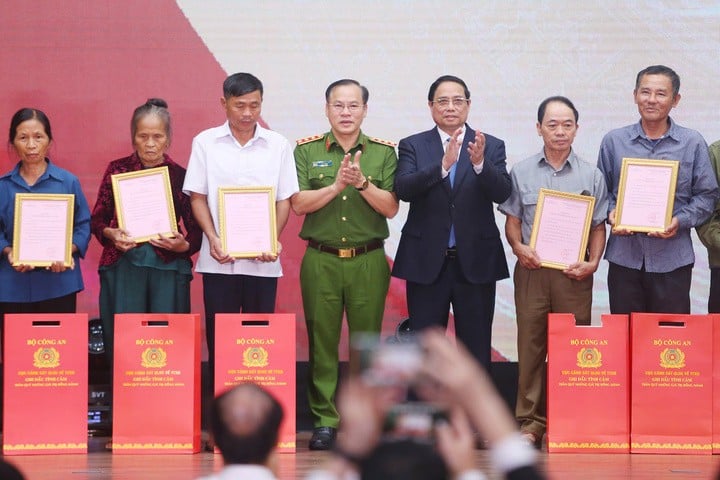
The Prime Minister affirmed that DNA identification is not only a biological technique, but also the key to restoring historical memories for the families of martyrs, and a tool to connect the past, present and future. This demonstrates deep gratitude, and is a special moral and humanistic value of the Vietnamese people.
The Prime Minister believes that, with the steadfastness and perseverance in applying modern science; with deep gratitude and appreciation; with the national spirit and compatriotism; with the high determination, great efforts, and drastic actions of our entire Party, people, and army; and of relevant ministries, branches, agencies, and localities, we will continue to coordinate closely and effectively, and apply more creatively and flexibly the tools, means, and resources to effectively and efficiently carry out this special task.
"We must achieve the goal of bringing many martyrs back to their names, to their homelands and families, so that no martyr is forgotten, no martyr's family has to wait and look forward in vain. Contribute to easing the pain of war of the nation, of each citizen, of each martyr's family and of our entire country," The Prime Minister emphasized.
According to C06, on July 23, 2024, the Ministry of Public Security advised the Government to launch the Gene Bank (DNA) of relatives of unidentified martyrs.
On December 5, 2024, C06 advised the Ministry of Public Security to issue Decision No. 9686/QD-C06-TTDLDC approving instructions for agencies and organizations to test, analyze, and create data to serve the collection and updating of DNA biometric information into the identification database.
During the implementation process, relevant units for the first time deployed the collection and digitization of martyr information data with information on maternal relatives for each case.
Then, based on information on the martyrs' remains collected by the Policy Department (Ministry of Home Affairs), Ministry of National Defense, the Ministry of Public Security quickly reviewed and "cleaned" the martyrs' information data, relatives' information and organized the collection of DNA samples from the martyrs' relatives.
Currently, the Ministry of Public Security has compared the data of martyrs' remains and determined the identities of 16 cases of martyrs' remains DNA. Thereby completing the identity recognition dossier for 16 heroic martyrs.
To support funding, Department C06 mobilized social resources to conduct GEN sequencing with relatives of martyrs under the policy, the total expected number of samples received is 17,500, equivalent to 39.4 billion VND.
As a result, as of July 20, Department C06 completed analyzing 11,138 DNA samples of martyrs' relatives, and updated the ID database with more than 10,000 DNA data of martyrs' relatives.
According to the Ministry of Public Security, laboratories have analyzed 5,493 DNA results out of a total of 17,726 remains and relatives handed over. About 12,233 remains have not been analyzed or tested.
At the conference, Deputy Minister of Public Security Nguyen Van Long requested units to increase the application of digital technology, maximize population data, combine biological data and genetic engineering.
Thereby, striving to basically create and collect complete information of all unidentified martyrs by 2027, collect and analyze DNA samples for relatives of eligible martyrs to integrate into the Gene Bank.
The leaders of the Ministry of Public Security affirmed that this is a noble task, demonstrating the morality of "When drinking water, remember its source" and is the deep gratitude of the Party, State and people for the outstanding children who heroically sacrificed for the independence and freedom of the Fatherland.
Source: https://baolangson.vn/thu-tuong-phai-dua-duoc-nhieu-liet-si-tro-ve-voi-ten-tuoi-que-huong-gia-dinh-5054200.html




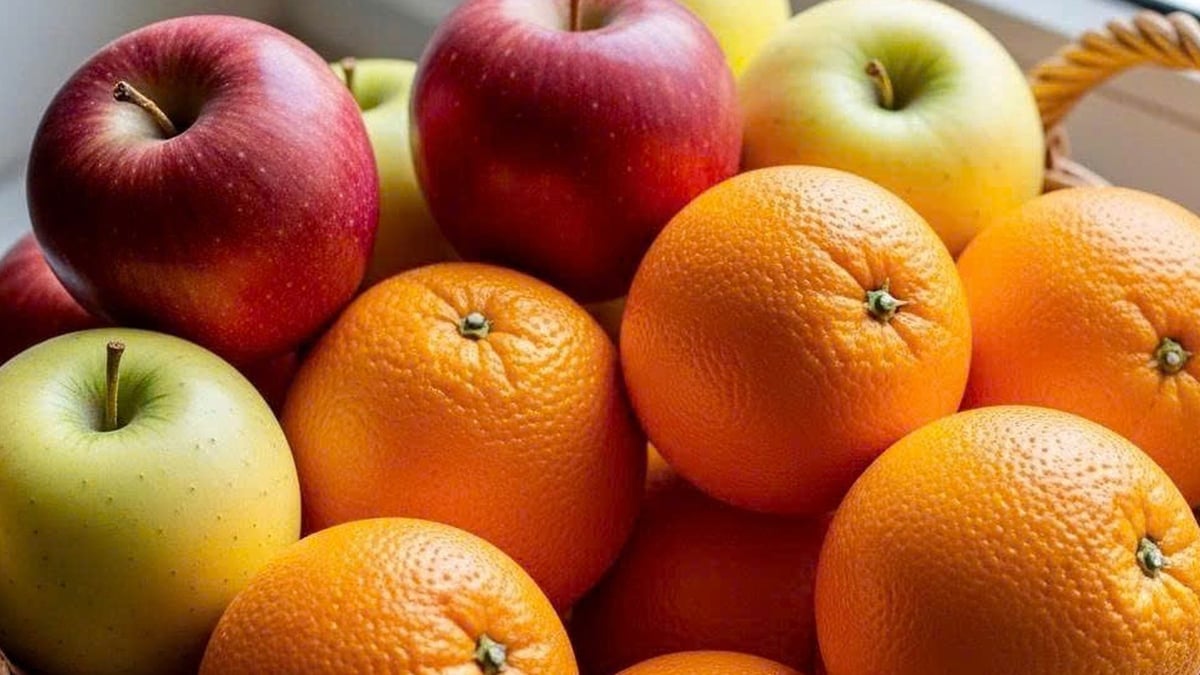
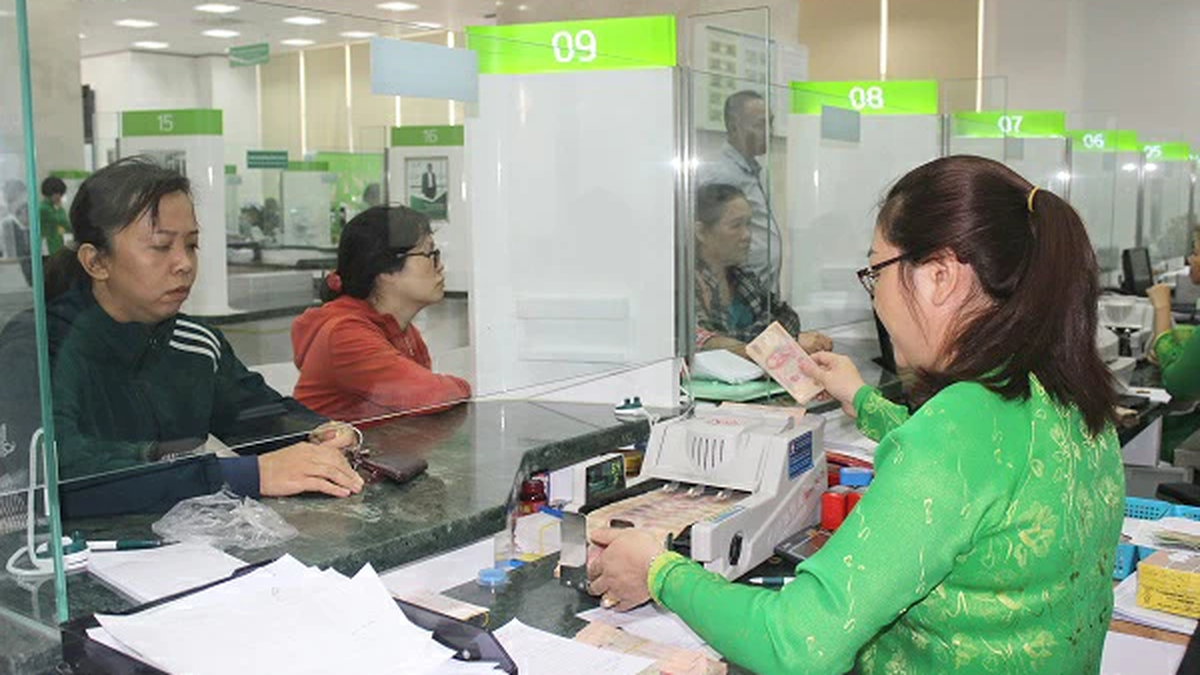


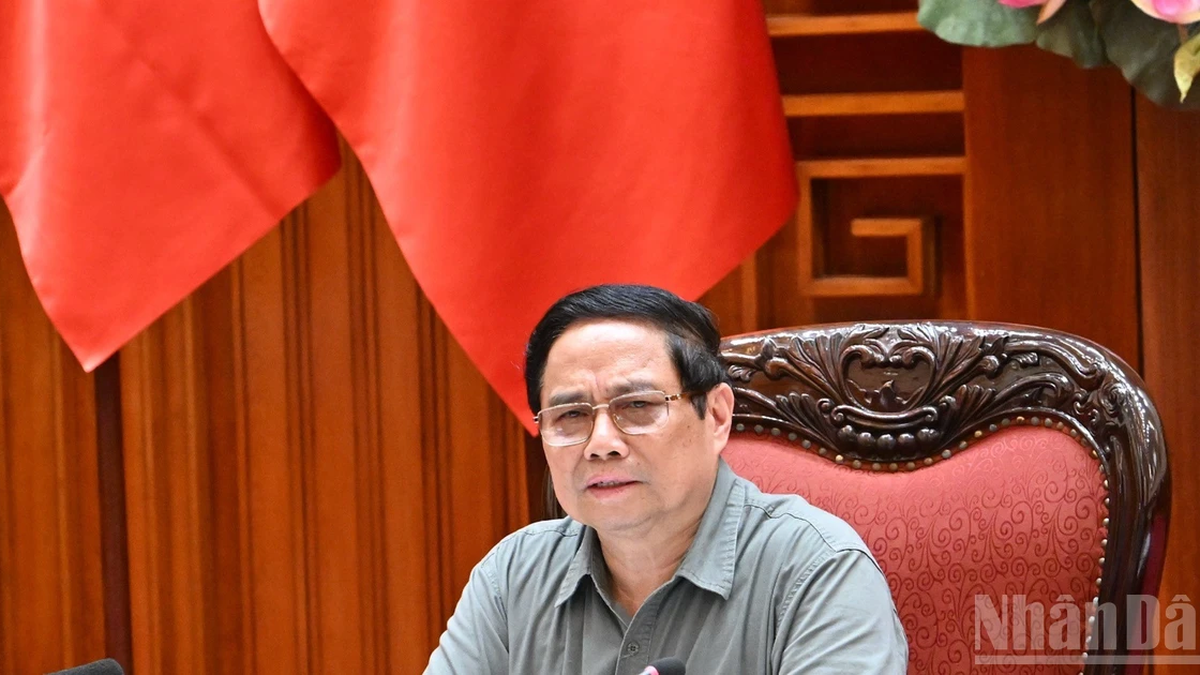
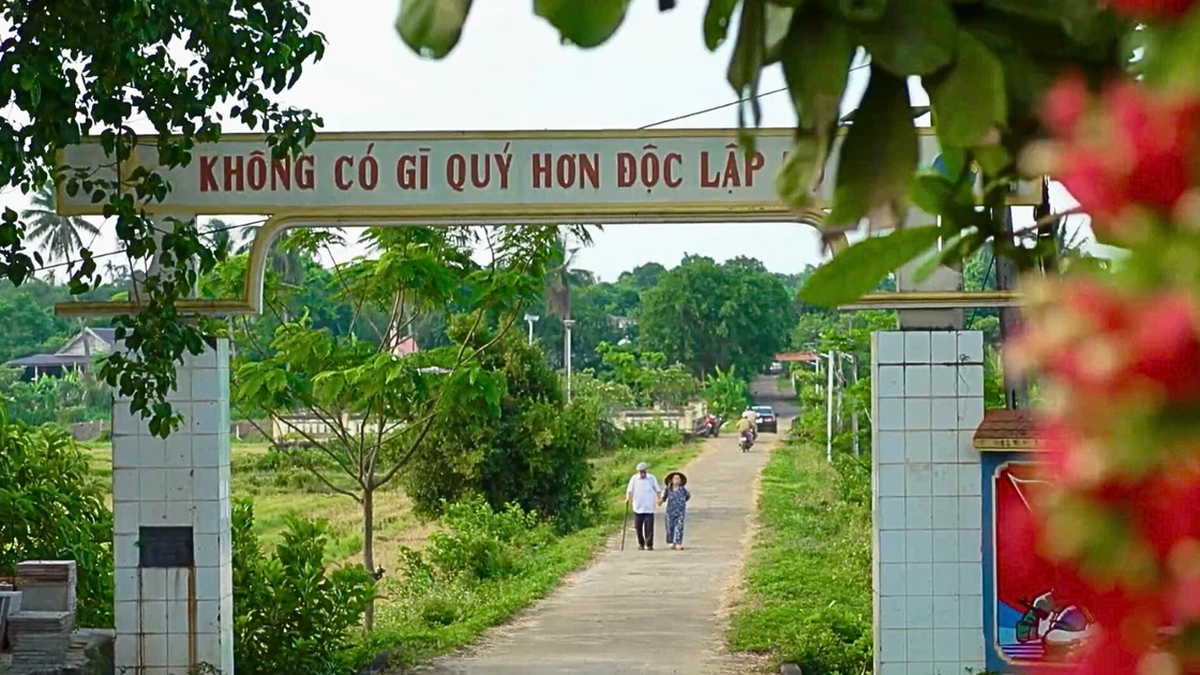

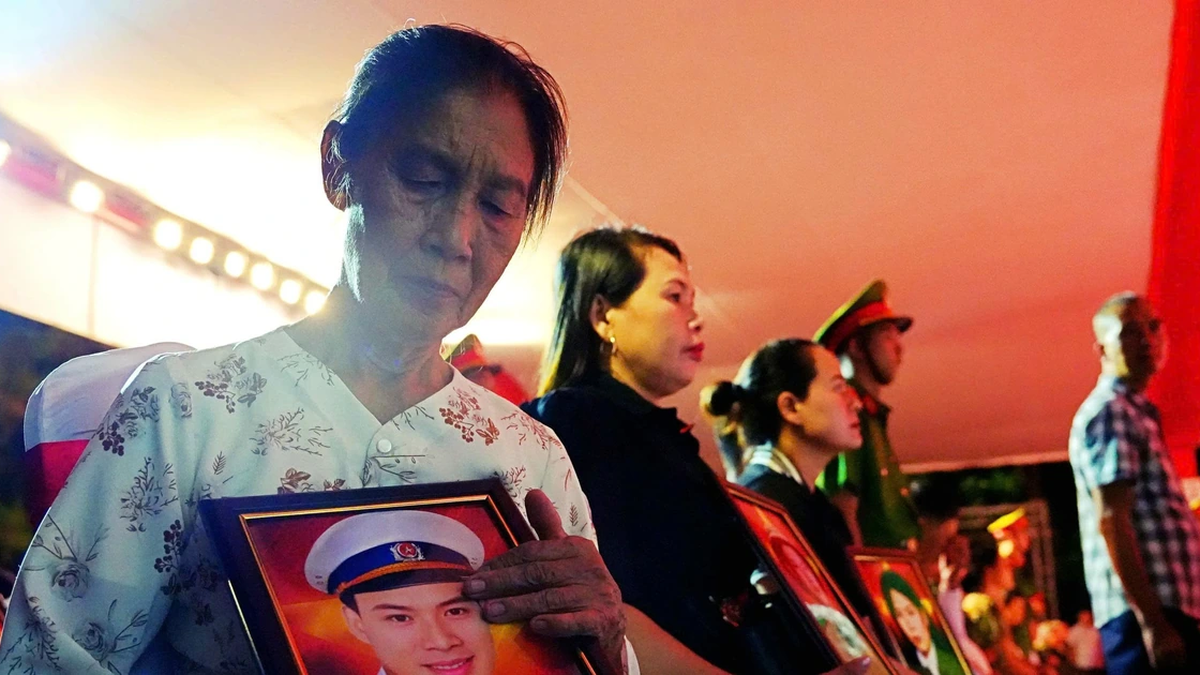























































































Comment (0)